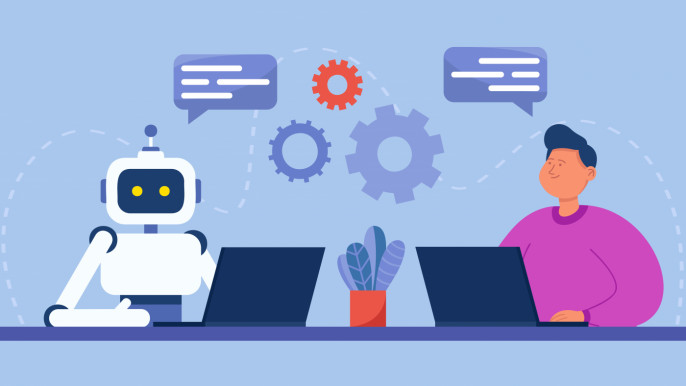
- George RR Martin, renowned author of the “Game of Thrones” series and a group of best-selling fiction writers have filed a class action lawsuit against OpenAI, accusing the tech startup of copyright infringement in their efforts to train ChatGPT
- It is a growing concern in the tech world that must be addressed, as the boundaries of intellectual property rights are tested in an era of rapid AI development.
- OpenAI’s ChatGPT has often been described as having “opened the AI floodgates,” but this lawsuit represents one of the first substantial challenges to the technology.
A class-action lawsuit has created a contentious clash between creativity and technology. George RR Martin, renowned author of the “Game of Thrones” series, and a group of best-selling fiction writers have filed a class action lawsuit against OpenAI. Accusing the tech startup of copyright infringement in their efforts to train ChatGPT, OpenAI’s generative AI chatbot. This legal battle, joined by The Authors Guild and notable novelists like John Grisham and Jodi Picoult, sheds light on the intricate web of intellectual property, the power of AI, and its implications for creative industries.
Class action lawsuit
A class action lawsuit is a legal case in which individuals with similar grievances or harms collectively sue a defendant, typically a company. This consolidation of claims streamlines legal proceedings, allowing individuals to pool their resources and be represented by class representatives. To proceed, the court must certify the class, and members are notified, often with the choice to opt in or out. Class actions can result in settlements or trials, with monetary awards distributed among class members. They provide access to justice for many and hold defendants accountable, but can be complex and lengthy legal processes.
The accusation of Copyright violation
At the heart of this legal confrontation lies the accusation that OpenAI used the works of these prominent authors “without permission” to train ChatGPT’s language models. The lawsuit contends that OpenAI’s actions represent nothing short of “systematic theft on a massive scale.” This bold assertion underscores the severity of the matter. Suggesting that the very foundation upon which AI like ChatGPT is built might be compromised by copyright issues.
This is not an isolated incident. Artists, organizations, and coders have filed various lawsuits against OpenAI and its competitors. All claim that OpenAI and its competitors have utilized their creative works without consent. The tech world must address this growing concern. Rapid AI development is testing the boundaries of intellectual property rights in this era.
The threat to Fiction Writers’ livelihoods
The crux of the complaint revolves around the potential threat posed by OpenAI’s language models to the livelihoods of fiction writers. ChatGPT and similar AI models can generate human-like text responses based on simple queries. Effectively producing content that mimics the style and substance of an author’s work. This ease of content generation, often free or at a minimal cost, can potentially undercut the market for professional authors’ creations.
In the complaint, it is argued that OpenAI’s “willful copying” effectively turns the works of these authors into engines. Thus fueling its success while potentially undermining the market for original literary content. The concern is that AI can replicate the style and substance of an author’s work to the point where it becomes indistinguishable from the original. Consumers may turn to AI-generated content, leaving traditional authors struggling to make a living.
The timing and broader context
The timing of this lawsuit is noteworthy, as it coincides with a strike by Hollywood writers over a pay dispute. Among the grievances cited by the striking writers is the use of AI to replace human writers in various creative endeavors, including screenwriting. This underscores the broader context of the ongoing battle between creativity and automation in the entertainment and publishing industries.
AI has shown great promise in automating tasks and generating content efficiently. However, it also raises ethical and economic questions about its impact on the livelihoods of human creators. As AI technology continues to advance, these questions will become increasingly urgent.
The lawsuit’s demands and OpenAI’s response
The lawsuit filed by George RR Martin, The Authors Guild, and fellow novelists seeks to highlight the alleged copyright infringement. In addition to securing a ban on using copyrighted books to develop language models without explicit authorization. Additionally, the plaintiffs are pursuing damages for the alleged harm caused by OpenAI’s actions.
As of now, OpenAI has not publicly responded to the lawsuit. The outcome of this legal battle could have far-reaching consequences for how AI models will develop and train in the future, particularly concerning copyrighted material.
OpenAI’s approach to text training
OpenAI’s approach to training ChatGPT and similar language models has used extensive text data from online sources. However, the company has not disclosed specific details about their sources. This lack of transparency regarding data sources has raised concerns about potential copyright violations. Putting a spotlight on the ethical use of publicly available text.
The lawsuit against OpenAI highlights the need for more transparency and ethical considerations when training AI models using publicly accessible text data. It calls into question the responsibility of tech companies to ensure that their AI training practices comply with copyright laws and respect the rights of content creators.
Microsoft’s involvement and legal protection
Notably, Microsoft is a major investor in OpenAI and has also faced legal challenges related to AI-generated content. Microsoft announced it would provide legal protection for customers sued for copyright infringement over content generated by its AI tools. This move reflects the growing legal complexities surrounding AI-generated content and the need for legal safeguards.
The significance of the lawsuit
Many have often described OpenAI’s ChatGPT as having “opened the AI floodgates,” but this lawsuit represents one of the first substantial challenges to the technology. While the case may prove difficult to prove definitively, it can potentially create significant legal and ethical precedents for using AI in creative industries.
The outcome of this lawsuit will undoubtedly be closely watched by both tech companies and content creators alike. It raises fundamental questions about the balance between technological innovation and protecting intellectual property rights. As AI continues to reshape industries, this case is a stark reminder that the intersection of technology and creativity is a complex and evolving landscape. It will require careful consideration of legal and ethical implications.
- SEO Powered Content & PR Distribution. Get Amplified Today.
- PlatoData.Network Vertical Generative Ai. Empower Yourself. Access Here.
- PlatoAiStream. Web3 Intelligence. Knowledge Amplified. Access Here.
- PlatoESG. Carbon, CleanTech, Energy, Environment, Solar, Waste Management. Access Here.
- PlatoHealth. Biotech and Clinical Trials Intelligence. Access Here.
- Source: https://web3africa.news/2023/09/28/news/game-of-thrones-writer-sues-chatgpt/
- :has
- :is
- :not
- :where
- a
- About
- access
- accessible
- accountable
- Action
- actions
- addition
- Additionally
- address
- addressed
- advance
- against
- AI
- AI chatbot
- AI models
- AI training
- alike
- All
- alleged
- Allowing
- also
- among
- an
- and
- announced
- approach
- ARE
- argued
- around
- Artists
- AS
- At
- author
- authorization
- authors
- automating
- Automation
- available
- awards
- Balance
- Ban
- based
- Battle
- bbc
- BE
- become
- becomes
- been
- between
- bold
- Books
- both
- boundaries
- broader
- built
- but
- by
- Calls
- CAN
- careful
- case
- caused
- certify
- challenges
- chatbot
- ChatGPT
- choice
- cited
- claim
- claims
- Clash
- class
- Class Action
- class action lawsuit
- closely
- coincides
- collectively
- Companies
- company
- competitors
- complaint
- complex
- complexities
- comply
- Compromised
- Concern
- Concerns
- consent
- Consequences
- consideration
- considerations
- consolidation
- Consumers
- content
- content creators
- Content Generation
- context
- continues
- copyright
- copyright infringement
- Cost
- could
- Court
- create
- created
- creations
- Creative
- creativity
- creators
- Customers
- data
- defendants
- demands
- described
- details
- develop
- Development
- difficult
- Dispute
- distributed
- ease
- Economic
- effectively
- efficiently
- efforts
- endeavors
- Engines
- ensure
- Entertainment
- Era
- ethical
- evolving
- extensive
- faced
- far-reaching
- fellow
- Fiction
- filed
- First
- floodgates
- For
- Foundation
- Free
- from
- fundamental
- future
- game
- GAME OF THRONES
- generate
- generated
- generating
- generation
- generative
- Generative AI
- George
- great
- Group
- Growing
- guild
- harm
- harms
- Have
- having
- Heart
- Highlight
- highlights
- hold
- Hollywood
- How
- However
- HTTPS
- human
- Impact
- implications
- in
- incident
- Including
- increasingly
- individuals
- industries
- infringement
- Innovation
- intellectual
- intellectual property
- intersection
- into
- investor
- involvement
- isolated
- issues
- IT
- ITS
- John
- joined
- Justice
- Lack
- landscape
- language
- Laws
- lawsuit
- Lawsuits
- leaving
- Legal
- legal proceedings
- lies
- light
- like
- living
- major
- make
- many
- Market
- Martin
- massive
- material
- Matter
- May..
- Members
- Microsoft
- might
- minimal
- models
- Monetary
- more
- move
- must
- Need
- notable
- noteworthy
- nothing
- now
- of
- often
- on
- ONE
- ongoing
- online
- OpenAI
- or
- organizations
- original
- out
- Outcome
- over
- particularly
- Pay
- plato
- Plato Data Intelligence
- PlatoData
- Point
- pool
- posed
- potential
- potentially
- power
- practices
- proceed
- Proceedings
- processes
- producing
- professional
- prominent
- promise
- property
- Property Rights
- protecting
- protection
- Prove
- provide
- publicly
- Publishing
- Putting
- queries
- question
- Questions
- raised
- raises
- rapid
- reflects
- regarding
- related
- Renowned
- replace
- represent
- Representatives
- represented
- represents
- require
- reshape
- Resources
- respect
- responses
- responsibility
- result
- revolves
- rights
- safeguards
- Scale
- securing
- Seeks
- Series
- Settlements
- Sheds
- Short
- shown
- significance
- significant
- similar
- Simple
- Sources
- specific
- Spotlight
- stark
- startup
- strike
- Struggling
- style
- substance
- substantial
- success
- sue
- sued
- Sues
- Surrounding
- tasks
- tech
- tech companies
- tech startup
- technological
- Technology
- tested
- Testing
- text
- that
- The
- The Future
- theft
- their
- These
- they
- this
- threat
- Thus
- timing
- to
- tools
- traditional
- Train
- Training
- Transparency
- trials
- TURN
- turns
- typically
- underscores
- undoubtedly
- upon
- urgent
- use
- used
- using
- utilized
- various
- very
- Violations
- Watched
- web
- when
- which
- while
- will
- with
- without
- Work
- works
- world
- would
- writer
- writers
- zephyrnet













